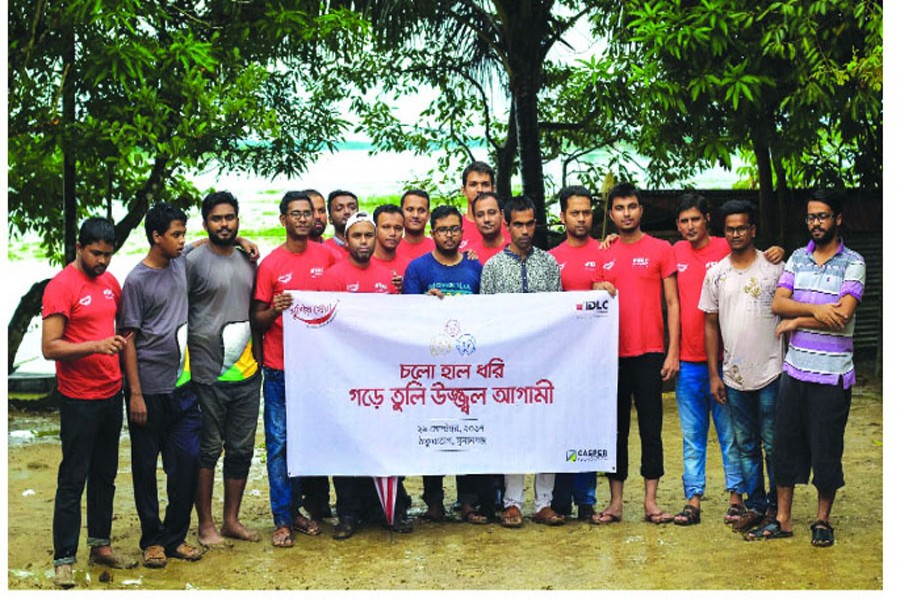In a low-land country like Bangladesh, floods are a common occurrence in monsoon every year. One particular area that has been gravely affected by this year's flood is Sunamganj, Sylhet. Around 200,000 hectares of land with crops have been washed away. Families in the flood affected areas have become homeless. Multiple initiatives have been taken by the government to help these flood-affected families. Aid from other sources such as NGOs have also been arranged.
One such NGO, Casper Foundation, completed the second intervention of project, 'Fight Back the Disaster' on September 29, 2017 at the Haor area in Thakurbhog, Sunamganj where they distributed livestock to 35 flood affected families. The initiative was jointly taken by Casper Foundation, Casper-BRAC University and IDLC Finance. About 20 individuals, including 10 volunteers from Casper-BRAC University as well as staff of IDLC Finance and Casper Foundation, actively participated in the project.
Casper Foundation is a Bangladeshi non-profit, youth empowerment organisation that works on personal and career development of students by involving them in social initiatives. Casper-BRAC University is one of the chapters of Casper Foundation where BRAC University students work towards tackling various social issues.
IDLC Finance is the largest non-banking financial Institution in Bangladesh which believes financing is much more than just a monetary transaction. Every transaction has a purpose, and the purpose is to finance happiness.
The first intervention of project 'Fight Back the Disaster' was conducted in March 2017 by distributing relief to the flood affected families at Thakurbhog. Residents of Thakurbhog lost 80-90 per cent of their sole crop, Boro paddy, earlier in March 2017 when the area faced unexpected flash-floods. Such flash-floods happen in this region between April-May every year because of the heavy rainfall upstream in the Indian State of Meghalaya. However, this year the floods happened relatively early in March. The Boro farmers were waiting for their crops to ripen when the floods hit this region. At that time, Casper Foundation alongside with IDLC distributed relief such as rice, lentils, saline etc. to 150 families.
During the first intervention, Casper Foundation identified that the relief given would merely last for a few days to a week at most. Following that, the families would starve under poor living conditions. Also, majority of the residents of that area being farmers relied upon their crops, thus they would not have a source of earning until their harvest in April 2018. Hence, Casper Foundation started planning sustainable projects for the victims of the Haor area.
Aligning with this aim of providing sustainable solutions to the haor area, each of 35 flood affected families received a goat. These families were given a basic training on how to maintain a goat as well. Casper Foundation planned the project so that these families could benefit from the milk of these goats for around a year and benefit from the cash earned by selling it. The project was therefore sustainable as it provided the families with an aid that will help them in the long run.
The CEO of Casper Foundation Taufiq Uz Zaman said, 'We wish to construct independent communities so that these families can sustain and empower other affected victims in the long run; eliminating the repetitive need for relief.' Casper Foundation aims to continue visiting the Haor area and initiate projects such as setting up a library for local students, constructing a proper school etc. the Group Chief Marketing Officer of IDLC Finance, Jane Alam Romel said, 'IDLC is always working relentlessly for a better future for all. This initiative is a part of our vision.'
The writer is an avid reader and a tech enthusiast working as product development specialist at
Robi Axiata Limited, email: [email protected]


